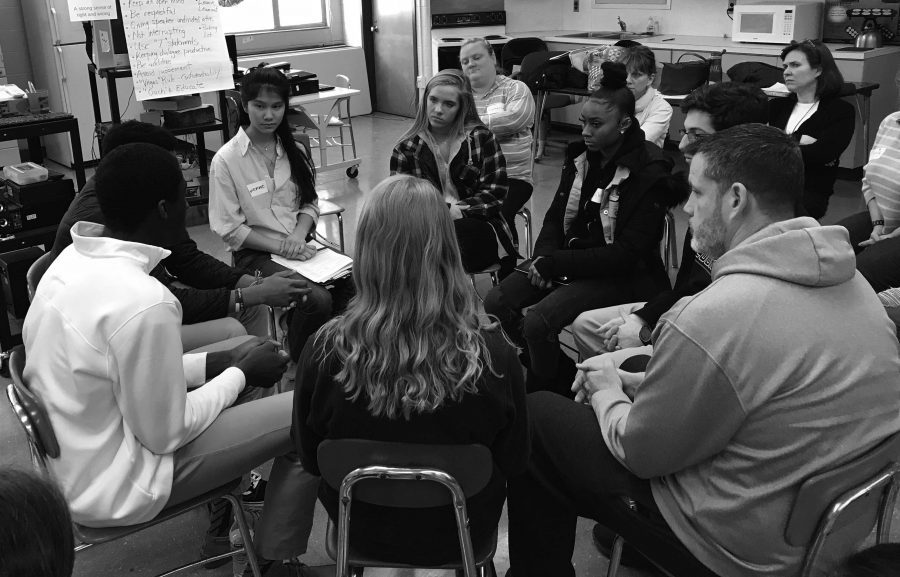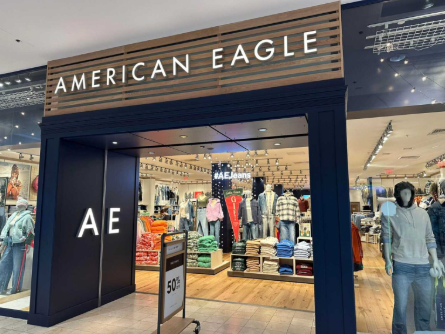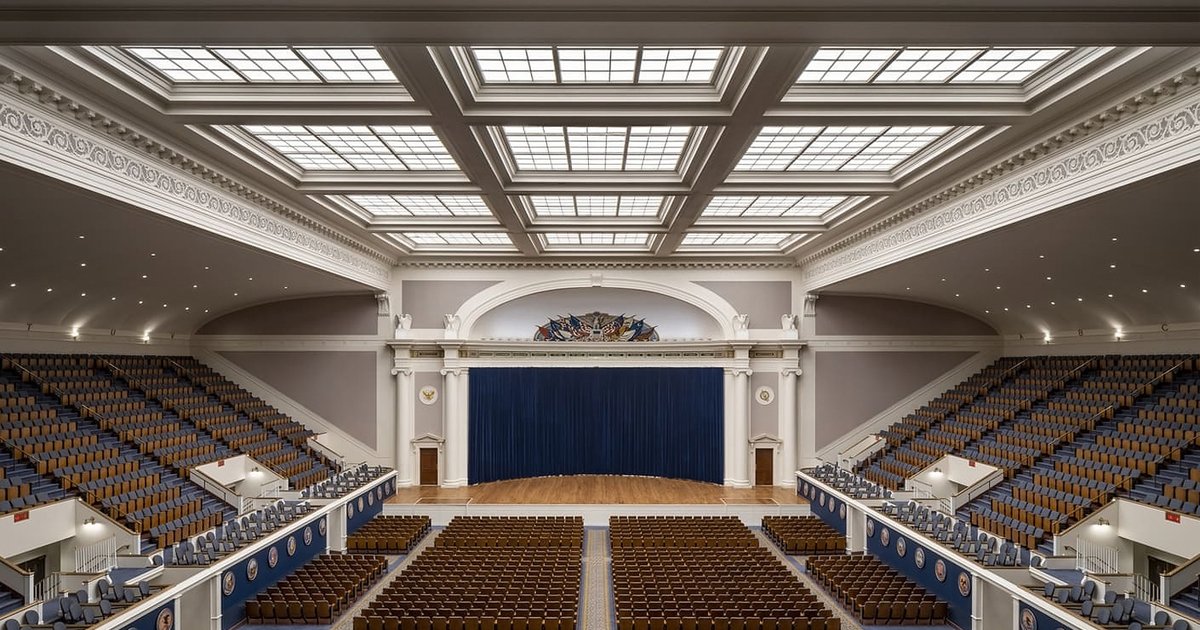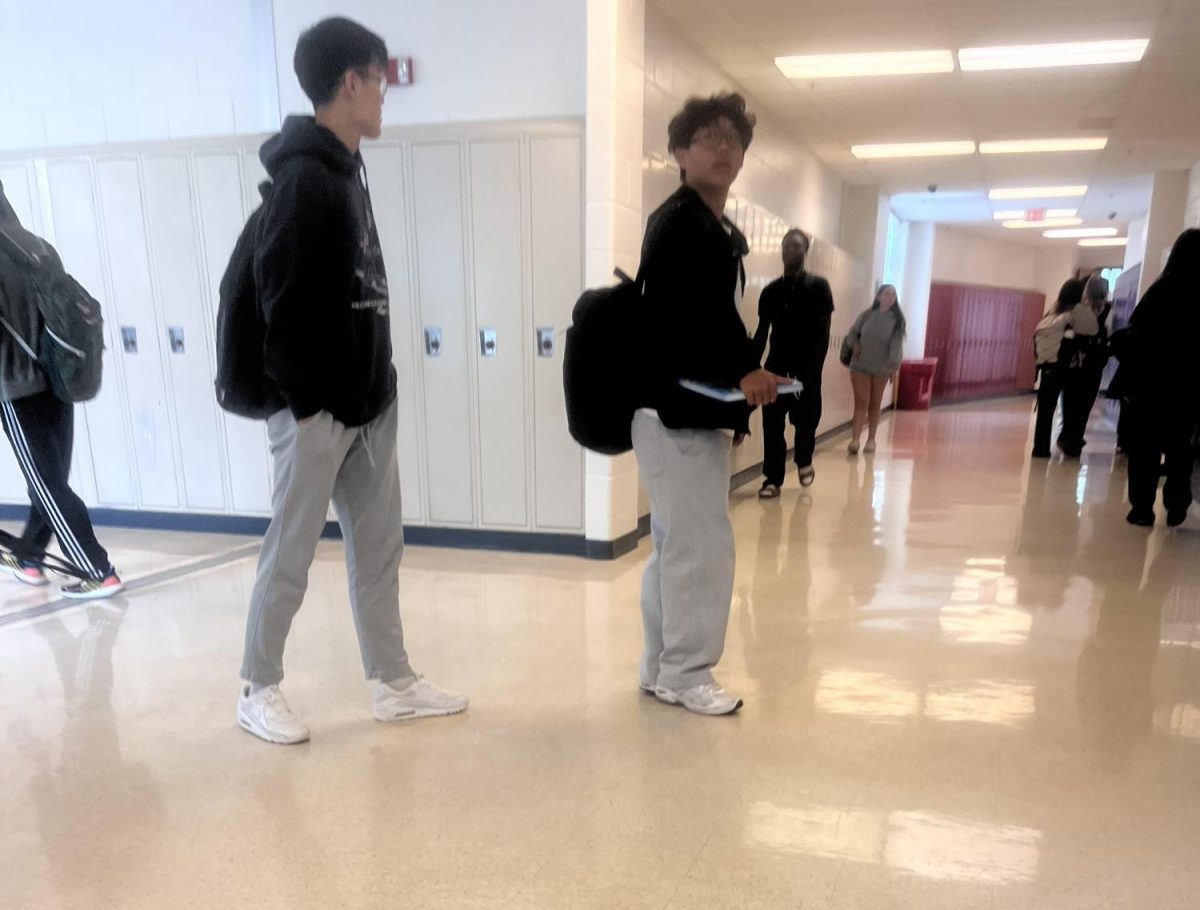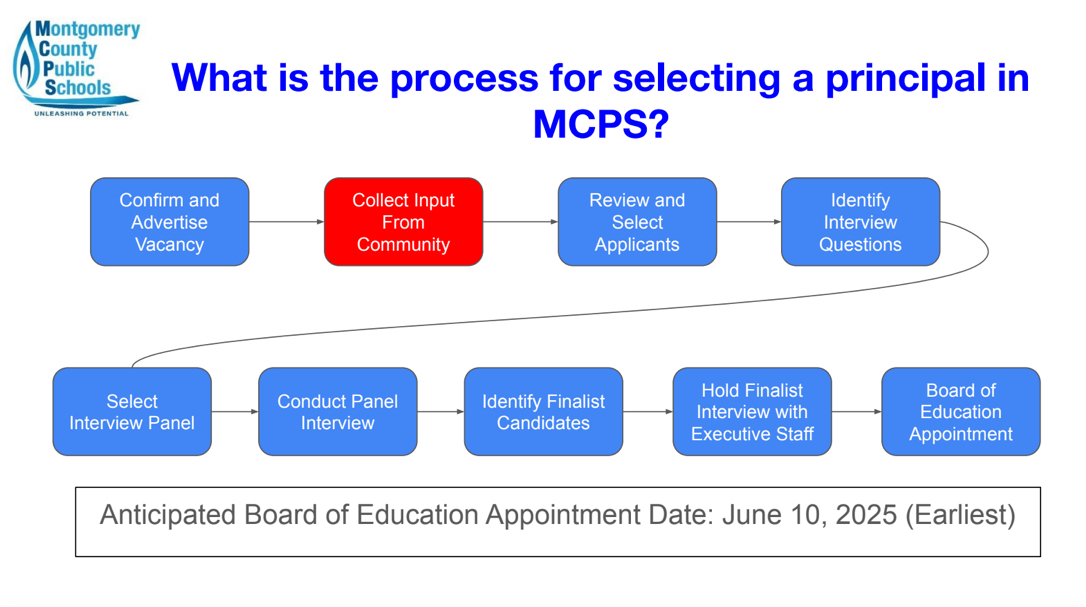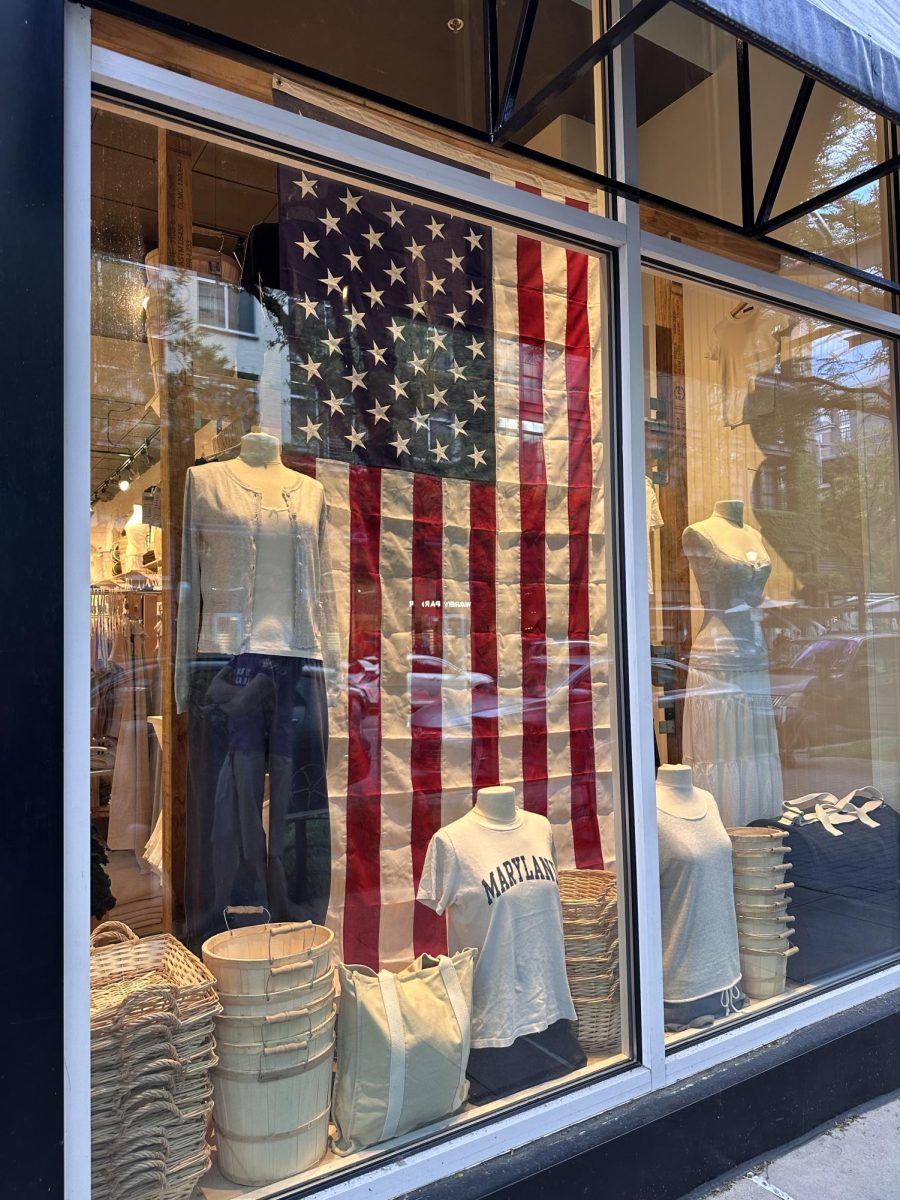I was sitting in chemistry class when I received an invitation to study circles. I attended an informational meeting before the event where the other invited students and I received a letter to give to our parents and a form to sign, which would ensure we were going to be attending. My eyes immediately shifted to where the form mentioned the circles would be taking place over a span of two days. How was I going to make up all the classes I would miss? Eventually, with the help of advice I received from multiple people, I decided to participate.
On Mar. 6 and 7, students and staff took part in study circles. Study circles allowed people the opportunity to engage in conversations about race, experience a broad range of perspectives and pinpoint policies and practices that have increased the achievement gap.
The students who participate in study circles were recommended by teachers and administrators. Teachers generally recommend students who they perceive as thoughtful in the classroom and able to engage in difficult conversations. “Administrators may also recommend students who they think feel disconnected or have faced certain challenges in being integrated into the Wootton community,” English teacher and study circles coordinator Amani Elkassabany said.
The morning of the first day of study circles, the invitees were asked to meet in the library for a brief introduction to the facilitators and other attendees. Students and staff also heard a few words from Principal Kim Boldon to signify the beginning of the two-day event. The large group, which consisted of 20-30 people, was then divided into two smaller groups randomly, one of which was situated in a different room.
The people in study circles take part in one of the most empowering forms of human activity—dialogue. Dialogue is informal conversation between two or more people. In literature, dialogue is a way for an author to communicate information to the audience, broaden character development, create conflict and advance the plot. The simple eight-letter, three-syllable word is most importantly a tool in real life that can teach us to accept and respect others’ opinions. In these fast-paced, thrill-seeking times, it is often boring to simply engage in dialogue, but it is necessary. “It is important that the public know that talk therapy is an important tool in the healing process precisely because of its powerful effects on the brain,” according to The New York Times writer and professor of psychiatry Larry S. Sandberg.
Study circles are a place where dialogue is key. The students and staff who attend study circles are given two days to discuss prevalent issues in this community. Although there are disagreements and opposing opinions, people know the difference between dialogue and debate and listen to everyone in the group share.
On the first day, my peers and I were told to address the teachers present by their first names. You can imagine my surprise. I understood that getting rid of all the courtesy titles would ensure equality amongst the students and staff present. However, as I responded to teachers during discussions I continued to hesitate in referring to them using just their first names.
That first day consisted of trust-building activities that laid the groundwork for the more difficult conversations that took place on the second day.
The first activity was an icebreaker where we identified similarities and differences among the people in the group by calling out characteristics and standing up if we identified with them. They were superficial, like “people who wear glasses,” but the simple connections sparked a friendly environment in the room. The high-spirited group of people in the room helped melt away any feelings of uncertainty I had.
We were then asked to write down the events in our lives that most impacted us on a timeline. It was then that our group developed a bond, when people were asked to share personal events in their lives and the discussion took an emotional turn. I was surprised in finding myself sharing something I hadn’t shared to anyone before to a group of people I was only acquaintances with. People listened quietly as the person sitting next to them narrated a time in their life that had changed them.
I understood the importance of listening when the group responded to current events. We were asked to enter the conversation with a non-judgmental observation. People in the room shared why they had sided with one of four perspectives: moral, intellectual, emotional and social. My reaction to many of the current events was emotional, but I enjoyed hearing why another person thought the issue being discussed was a social or moral issue. The discussions were extremely productive in that people who didn’t know much about the current events being talked about learned about them through multiple outlooks.
Social studies teacher Christopher McTamany said the study circles are a great way for both students and teachers to experience different opinions and ideas. For McTamany, study circles were a way for us to understand problems others face that we don’t realize. “[I took away] a better understanding about issues, the perspectives from all the people, seeing how they would be different from mine and trying to incorporate those ideas and understandings into my everyday teaching,” McTamany said.
McTamany feels it would be good for people to take part in study circles and be open to understanding different point of views. He also likes the fact that the personal opinions and stories shared in study circles are not shared with the whole school.
Senior Debrah Bett had no idea what to expect going into study circles, but after the final day she felt that her mindset had been renewed and reset. “Sure, I would get to miss two days of class and even get free food, but what I didn’t know was coming was one of the best and most life-changing experiences of my life,” Bett said. “I felt like I had gained a sixth sense, or some kind of superpower: the ability to see and understand things from so many different perspectives.” Getting the opportunity to hear the challenges that people of various races, ethnicities and ages have faced nearly brought Bett to tears. “Consequently, I now stroll through the halls hypersensitive to how I treat others and how that may affect them amid what challenges they may already be facing,” Bett said.
She was surprised to find that the study circles were the true definition of a safe-space. “The safe and judgment-free environment the facilitators and group members created really allowed me to share my beliefs with people I had never met before,” Bett said.
English teacher Catherine Boswell got a better sense of who students are as people. She enjoyed the exchange of ideas and learning about students she had never met before. “By the end, I thought I knew all of the students,” she said.
Boswell enjoyed the icebreaker games in the beginning and felt that the group of people in the study circle immediately clicked. She talked about her experience in study circles to her colleagues, encouraging them to participate in a study circle if given the opportunity. “This particular group gelled well together. The study circles brought strangers together,” Boswell said.
Sophomore Rachel Son felt study circles have helped her become more aware of her surroundings. “I realize that everyone has similar opinions and we should start to build a solution [to prevalent issues] starting from the common ground,” Son said.
As a facilitator, sophomore Anya Bijlani had to stay neutral on all topics. “For someone who is opinionated like me, this is one of the most difficult things to do because you constantly want to give your opinion, but you have to remember that you are only there to keep the conversation going,” Bijlani said.
Eleven students and three staff attended a three-day intensive training in December and January in order to become facilitators. Student facilitators are mature leaders who are chosen through counselor and administrator recommendations. “We look for students who can maintain a calm composure and can manage group dynamics well,” Elkassabany said.
Elkassabany first learned about study circles when she went through a study circle facilitator training in 2015. Her suggestion to the leadership team at this school to participate in study circles lead to the first student-staff study circle at this school in 2016. “I am tasked with coordinating and administering study circles but really it has been the mission of our administration and leadership team to conduct them because we know that there is still an achievement gap here,” Elkassabany said.
It’s crazy what can happen when you put a few strangers of different backgrounds and ages in a room together for two school days. On Mar. 6 and 7 strangers felt united as they shared their personal perspectives and stories with each other. We learned that something so simple as good listening could lead a heated conversation a debate, but to a satisfying conclusion.


